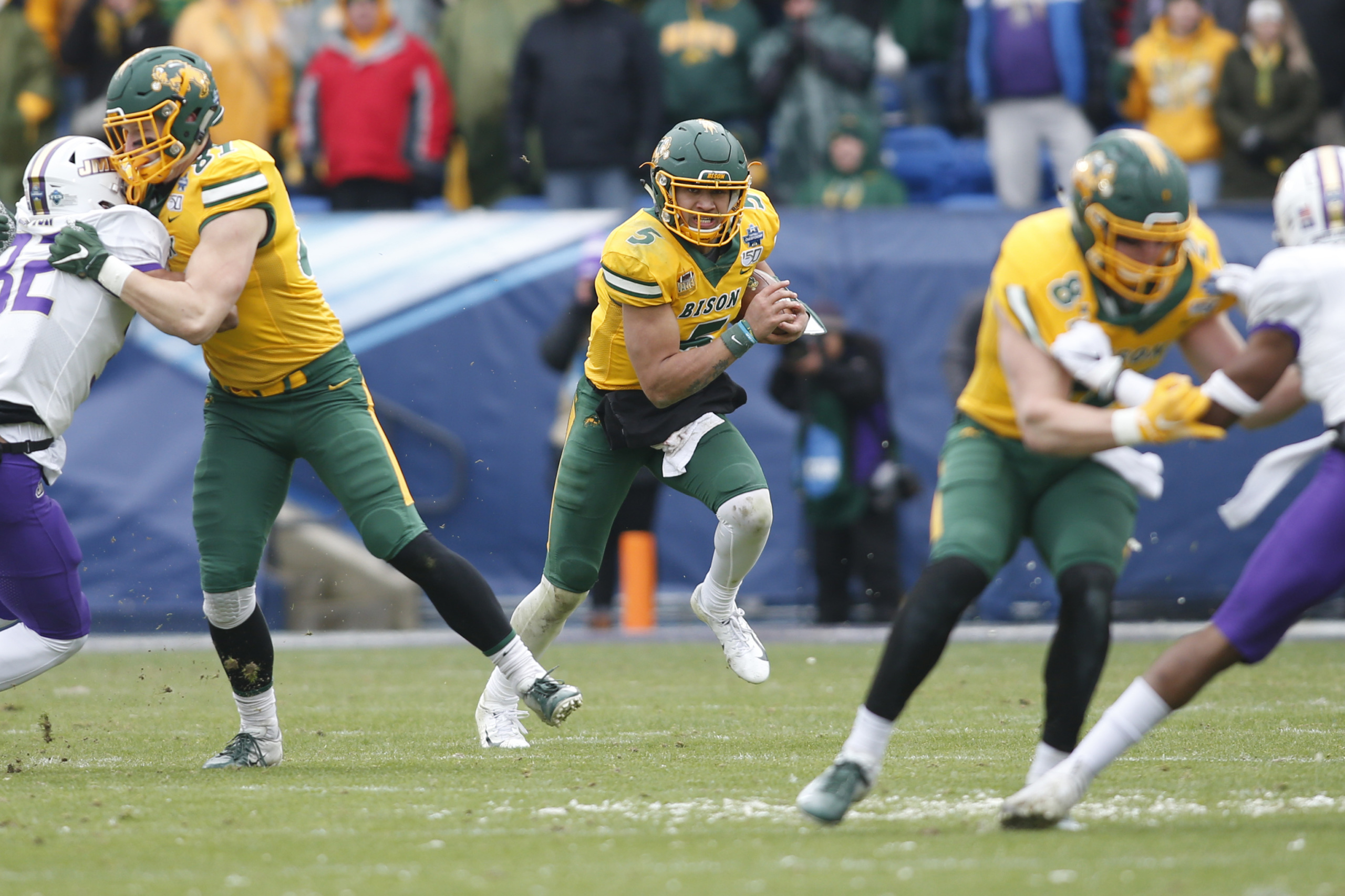Following postponement of the regular season last fall, FCS football teams spent the last semester practicing and training for an unorthodox spring schedule.
This week, they will finally commence a season that extends until May.
Unlike FBS schools who needed revenue from the fall football season, most FCS programs will likely lose money from playing this season.
FCS vs. FBS Finances
FBS and FCS schools divide their budgets in similar ways. But they differ in the revenues they receive, according to the Knight Commission’s College Athletics Financial Information database: Most FCS schools make the lion’s share of revenue from institutional support and student fees. In 2018, for example, these two streams comprised 69% of total FCS revenue.
Ticket sales, donor contributions, NCAA distributions, and sponsorships made up just 22% of all FCS revenue. FBS schools earned 75% of total revenue from those avenues.
FCS programs also make revenue from competition guarantees, when FBS programs pay to play them to bolster their records for bowl season. About 5% of all revenues came from competition guarantees in 2018.
Only a few FCS programs generate revenue at rates that rival some of the smaller FBS teams.
FCS powerhouse North Dakota State — the alma mater of multiple NFL players including Carson Wentz — generated 61% of its 2018 revenue from ticket sales, sponsorships, donations, competition guarantees, and NCAA distributions, and just 31% from institutional support and student fees.
Impact of Pandemic Football
FBS programs recouped millions in media rights revenue by plodding on with the normal football schedule.
But FCS programs may not earn even the modest revenue from ticket sales, competition guarantees, and donations that they normally receive, Defiance College assistant sports management professor, Dr. Scott Hirko, told FOS.
In addition, the cost of testing or extra safety precautions could provide an added burden on the smaller programs.
So why will they play a belated season at all? They have to pay their normal expenses, like coaching salaries or facilities fees, whether they play or not, Hirko said.
“Maybe they can just swallow their pride for a year.”






![[Subscription Customers Only] Jun 15, 2025; Seattle, Washington, USA; Botafogo owner John Textor inside the stadium before the match during a group stage match of the 2025 FIFA Club World Cup at Lumen Field.](https://frontofficesports.com/wp-content/uploads/2026/02/USATSI_26465842_168416386_lowres-scaled.jpg?quality=100&w=1024)
![[Subscription Customers Only] Jul 13, 2025; East Rutherford, New Jersey, USA; Chelsea FC midfielder Cole Palmer (10) celebrates winning the final of the 2025 FIFA Club World Cup at MetLife Stadium](https://frontofficesports.com/wp-content/uploads/2026/02/USATSI_26636703-scaled-e1770932227605.jpg?quality=100&w=1024)









